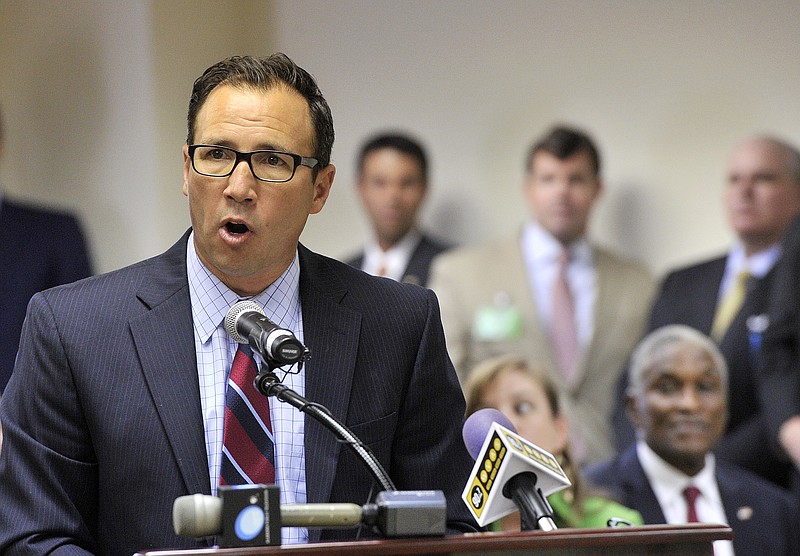MONTGOMERY, Ala. -- Gambling foes and proponents squared off in a public hearing Tuesday over whether a lottery and casinos would bring jobs and revenue, or corruption and vice to the state of Alabama.
The Alabama Senate Tourism and Marketing Committee held a public hearing on the bill by Senate President Pro Tem Del Marsh, R-Anniston, to authorize a state lottery and casinos at four dog tracks. Voters would have to approve the idea in a statewide vote.
The hearing showed some of the state's lingering divisions over gambling and a turf war over who would get to operate casinos if they should open in the state. The committee could vote on the bill Thursday.
"This is a big piece of legislation, a very controversial piece. But I think it's an option that should be put there as an option to help try to solve some of the budget problems in this state," Marsh said.
The legislation is the first big gambling bill to go before Alabama lawmakers since several senators and lobbyists, including VictoryLand owner Milton McGregor, were acquitted of charges of buying votes for a similar 2010 bill aimed at letting bingo casinos such as VictoryLand stay open.
Gambling opponent Joe Godfrey argued the revenue would not be free money to the state, because it would come from the pockets of losers who play a lottery or casino games.
"It is a tax. It's a tax on the poor. It preys on the people who can least afford to pay it," Godfrey, executive director of Alabama Citizens Action Project, said.
Katherine Robertson, vice president of the Alabama Policy Institute, said that studies show gambling revenue declines and that states with casinos and lotteries are facing budget shortfalls, just like Alabama. "It might be a quick fix, but it is not going to sustain us for the long term," Robertson said.
Others argued that the casinos could bring both an economic and entertainment boon to the state.
The Poarch Band of Creek Indians currently operates three casinos in the state with electronic bingo machines. The state has moved to shut non-Indian bingo operations down, arguing the slot machine lookalikes are illegal.
"Gaming is here. The question is, 'Are we going to get any revenue off of it?'" Marsh said.
Brent Thomas, a hardware store owner in Macon County, said the county had been devastated by the closure of VictoryLand bingo casino. "I've seen good hardworking people doing without, getting close to hungry," Thomas said.
McGregor once operated the nation's largest electronic bingo casino with 6,400 machines located 15 miles east of Montgomery.
Testimony also illustrated the developing turf war over who should run casinos if they are allowed.
Multiple speakers from the Wiregrass, a region of southeast Alabama, asked to have a fifth casino located in Houston County after the state shut down a bingo casino there.
"We have had a hard time recruiting industry to our area. This facility would provide much-needed jobs to our area. People need those jobs," said Sen. Harri Anne Smith, I-Slocomb.
Robert McGhee, governmental relations for the Poarch Band of Creek Indians said the proposed constitutional amendment "gives the greenlight to private race track owners and to conduct all forms of gambling" with the regulations to come later.
"It's like handing your teenager a credit card with no rules attached and then being surprised when you get a bill that looks like the Alabama budget deficit. It's a backwards thinking that opens the door to potentially irresponsible practices that would be hard to rein in after the fact," McGhee said.
Marsh, who is chairman of the committee, said he hoped to get the bill out of committee later this week. The committee will meet Thursday morning.
